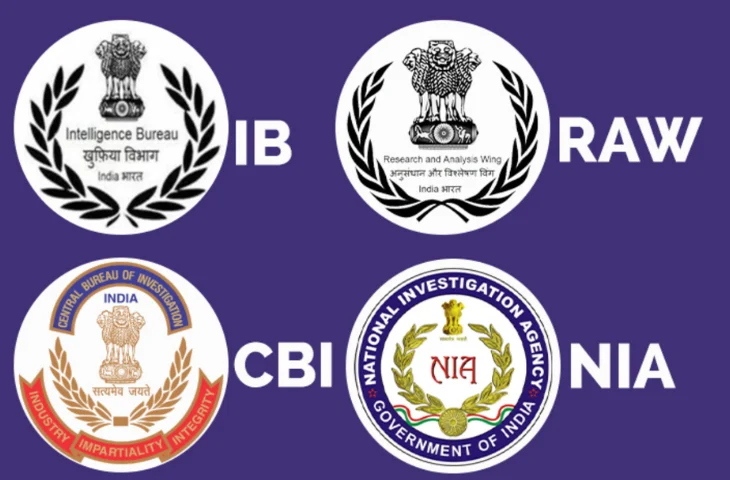India has multiple intelligence and security agencies, each with unique roles and responsibilities. Aspirants often get confused about the differences between the Intelligence Bureau (IB), Research & Analysis Wing (RAW), Central Bureau of Investigation (CBI), and the National Investigation Agency (NIA). Understanding these differences is important for planning a career in any of these organizations.
IB vs Other Security Agencies Overview
The Intelligence Bureau (IB), Research & Analysis Wing (RAW), Central Bureau of Investigation (CBI), and National Investigation Agency (NIA) are among the most prominent organizations. Each agency plays a crucial role in national security but differs in their focus areas, daily work, and career opportunities.
Intelligence Bureau (IB)
The Intelligence Bureau (IB) is India’s premier internal intelligence agency, tasked with ensuring domestic security, counter-intelligence, and monitoring potential threats across the country. The IB recruits officers through competitive exams like the IB ACIO Exam, IB JIO Exam, and IB SA Exam. Officers in the IB, including ACIOs, JIOs, and Section Officers (SAs), are involved in a wide range of activities such as surveillance, intelligence gathering, data analysis, and reporting.
While the IB ACIO Exam and IB JIO Exam open the doors for entry-level operational and analytical roles, the IB SA Exam is designed for candidates aiming for supervisory and strategic responsibilities within the Bureau.
These exams not only assess a candidate’s aptitude, analytical abilities, and field readiness but also prepare them for a career that balances on-ground intelligence work with strategic decision-making at higher levels.
Research & Analysis Wing (RAW)
The Research & Analysis Wing (RAW) is India’s external intelligence agency, primarily responsible for gathering foreign intelligence, espionage, and counter-terrorism activities outside India. Unlike the IB ACIO Exam or other direct recruitment exams, RAW does not conduct an open examination for entry. Officers are usually selected from government services like IAS, IPS, IFS, and defense backgrounds.
RAW officers often work overseas, handling high-level intelligence, diplomatic coordination, and covert operations. A career in RAW demands expertise in international relations, foreign languages, security studies, and strategic diplomacy, making it one of the most secretive and prestigious security agencies in India.
Central Bureau of Investigation (CBI)
The Central Bureau of Investigation (CBI) is India’s premier investigative body, best known for solving high-profile criminal cases, corruption matters, cybercrime, and economic fraud. Unlike the IB ACIO Exam or IB JIO Exam, aspirants usually enter the CBI through the SSC CGL Exam, which recruits Sub-Inspectors in CBI.
CBI officers focus on case-based work involving forensic analysis, interrogations, witness protection, and legal proceedings. Their investigations often receive national attention, and they are expected to maintain the highest standards of integrity and professionalism. Working with the CBI offers opportunities to deal with complex crimes and ensure justice at the highest level.
National Investigation Agency (NIA)
The National Investigation Agency (NIA) is India’s specialized counter-terrorism agency under the Ministry of Home Affairs. It investigates terror-related crimes, organized terrorism, and activities that pose threats to national security. Recruitment into the NIA usually happens through deputation from other agencies or via SSC CGL Exam for Sub-Inspectors.
NIA officers often collaborate with state police forces, paramilitary units, and intelligence agencies like the IB and RAW. Their role demands on-ground investigation, evidence gathering, and coordination in terror-related cases. A career in the NIA provides candidates with the opportunity to directly contribute to safeguarding India against internal and external security threats.
Key Differences, IB vs Other Agencies
Here’s a side-by-side comparison for clarity:
| Feature | IB | RAW | CBI | NIA |
| Primary Focus | Internal security & domestic intel | External intelligence & espionage | Criminal investigations & corruption | Terrorism & national security |
| Operational Scope | Within India | Outside India | Across India | Across India, national level |
| Nature of Work | Surveillance, field intel, analysis | Covert ops, espionage, intelligence collection | Case investigations, forensic analysis | Counter-terrorism, investigation of terror cases |
| Recruitment | ACIO/JIO exams, promotions | Direct recruitment, deputation | UPSC, state police, deputation | Deputation, specialized recruitment |
| Field vs Office | Mix of field and office | Mostly field, often international | Office & field depending on case | Field + office, highly mobile |
| Skill Requirements | Analytical skills, discretion, vigilance | Espionage skills, diplomacy, secrecy | Investigation, law, analytical skills | Terror investigation, analytical thinking, field operations |
| Travel Frequency | Moderate to high within India | High, international postings | Moderate, within country | High, multi-state deployments |
| Career Growth | ACIO → JIO → SA → Senior Officer | Officer → Senior Officer → Field Head | Inspector → SP → DIG → Director | Officer → Senior Investigator → Head of Division |
Work Culture & Job Environment
When choosing a career in intelligence or investigation, aspirants often wonder not just about the exam (like IB ACIO Exam, IB JIO Exam, or SSC CGL for CBI/NIA) but also about the work culture and daily job environment. Each security and investigative agency in India offers a different kind of professional life, some involve highly confidential desk work, others demand risky field assignments, while a few require legal and investigative expertise.
- IB: Dynamic yet structured; combination of desk work and field assignments; requires high discretion.
- RAW: Highly secretive, international postings, and unpredictable scenarios; intense training and field operations.
- CBI: Case-oriented, investigative; routine may involve office, court, and field investigations; slightly structured hours.
- NIA: High-stress environment due to terrorism cases; rapid deployment, multi-state operations, and inter-agency collaboration.
Which Agency Suits You?
Choosing the right agency depends on your career interests, risk appetite, and preferred work environment. Each agency offers a unique blend of responsibilities, from domestic intelligence to international espionage, legal investigations, and counter-terrorism.
- Choose IB if you want a mix of fieldwork and office analysis within India, and prefer domestic intelligence operations.
- Choose RAW if you enjoy international operations, covert assignments, and strategic intelligence collection.
- Choose CBI if you are inclined towards legal investigation, forensic analysis, and high-profile criminal cases.
- Choose NIA if you want to focus on counter-terrorism, multi-state operations, and high-risk intelligence work.
FAQs
Ans: The Intelligence Bureau (IB) handles domestic intelligence and internal security within India, while the Research & Analysis Wing (RAW) deals with external intelligence, foreign espionage, and counter-terrorism outside India.
Ans: Candidates can join IB through the IB ACIO Exam, IB JIO Exam, and IB SA Exam, which recruit for Assistant Central Intelligence Officers, Junior Intelligence Officers, and Security Assistants.
Ans: No, RAW does not conduct open recruitment exams like IB. Officers are usually selected from civil services (IAS, IPS, IFS), defense forces, or deputation from other intelligence/security agencies.
Ans: Recruitment for CBI Sub-Inspectors is mainly through the SSC CGL Exam. Higher-level positions are filled via deputation from police and other services.
Ans: The National Investigation Agency (NIA) recruits officers mostly through deputation from police, paramilitary, and intelligence agencies. Some entry-level posts like Sub-Inspector can be filled via SSC CGL Exam.
- Delhi Police HCM 2026 Admit Card for PET/PMT Release Date, Download PDF
- Delhi Police HCM Cut Off 2025, Expected & Previous Year Trends
- Delhi Police HCM Apply Online 2026, Check Release Date
- Delhi Police HCM Result 2026 Expected in March, Download PDF
- Delhi Police HCM Exam Date 2026 for PET/PMT expected in March 2026
- Delhi Police HC Ministerial Exam Pattern 2026, Check CBT, PE&MT Pattern

I’m Mahima Khurana, a writer with a strong passion for creating meaningful, learner-focused content especially in the field of competitive exam preparation. From authoring books and developing thousands of practice questions to crafting articles and study material, I specialize in transforming complex exam-related topics into clear, engaging, and accessible content. I have first hand experience of 5+ months in SSC Exams. Writing, for me, is not just a skill but a way to support and guide aspirants through their preparation journey one well-written explanation at a time.
